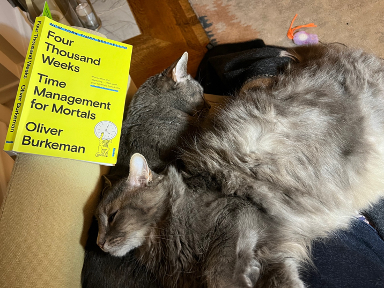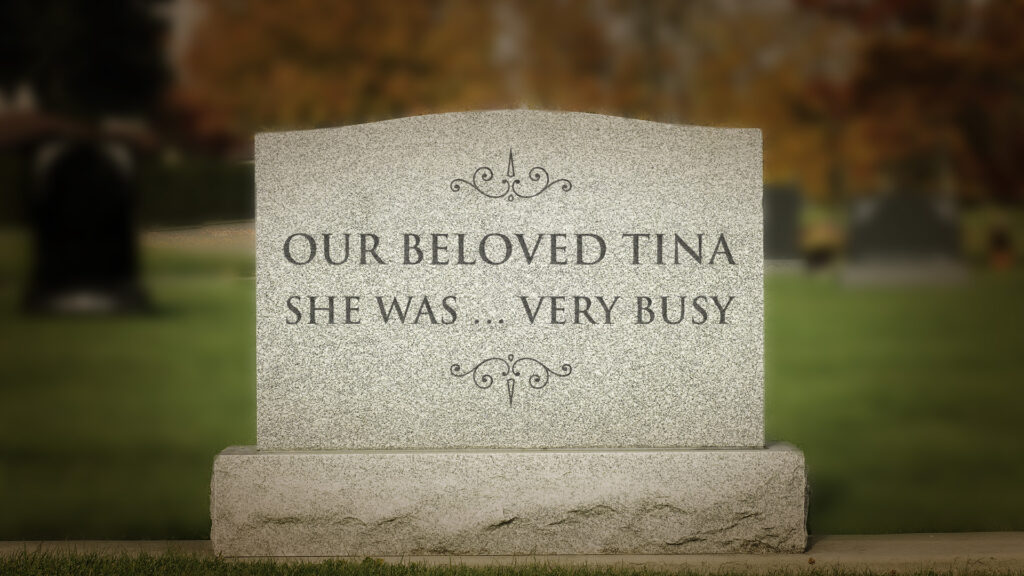My dear friend Kelley and I joke a lot about not wanting our gravestones to say, “Here lies Tina. She was busy.” We catch ourselves regularly responding to a mindless greeting of “How are you?” with a mindless and stressed response of “I’m busy.”
I’ve been pondering what it means to “live life on purpose” since I was a kid, watching my parents work so hard for every dollar they earned, and being born late in their lives, I observed a lot of their “doing” and wondered how it affected their “being.”

Like Oliver Burkeman, author of Four Thousand Weeks: Time Management for Mortals, I’ve made it my hobby (maybe even obsession) to find the most effective method to manage my time and get everything done. It includes a ridiculous amount of special pens, journals, time management software, and shelves of time management books.
Here’s why I love this one: He finally gets us to see and courageously admit that it’s impossible to get it all done. Systems and society (and commercials and social media) are rigged to continuously make it seem like it’s possible, but there’s a hard truth. The average life span is four thousand weeks, and we will always want to do more than time will allow.
So the question becomes, what do we really say yes to? Or “HECK YEAH!” to? Because every yes means ten thousand noes to other things … even when we think we’re incredible multitaskers. Ever bring your laptop to a kid’s game or feel a rush of adrenaline when you knock out a few emails while waiting in the grocery line? In those instances, what are we really saying yes to? This task-orientation way of living feels like constant joyless urgency. I’m guessing you can relate.
So what will it take to choose? What’s the criteria you use to choose yes or no? What really matters to you? How many systems have you tried? How many days do you feel like you did a million things but question what you really got done?
If I’m being honest, I bought the book because I’m addicted to finding as much information as I can on how to “improve” my effectiveness with time management, to learn what it takes to be aligned with my purpose and values, and to use time as soulfully as possible.
I was pleasantly surprised (and more than a tad uncomfortable at times) to find that this book spends most of its time trying to help me understand that time is finite and to put aside the expectations that time management perfection is attainable. It’s a philosophical dialogue with the soul to really ask what we want to do with what author Sarah Wilson calls “this one precious and wild life.”

